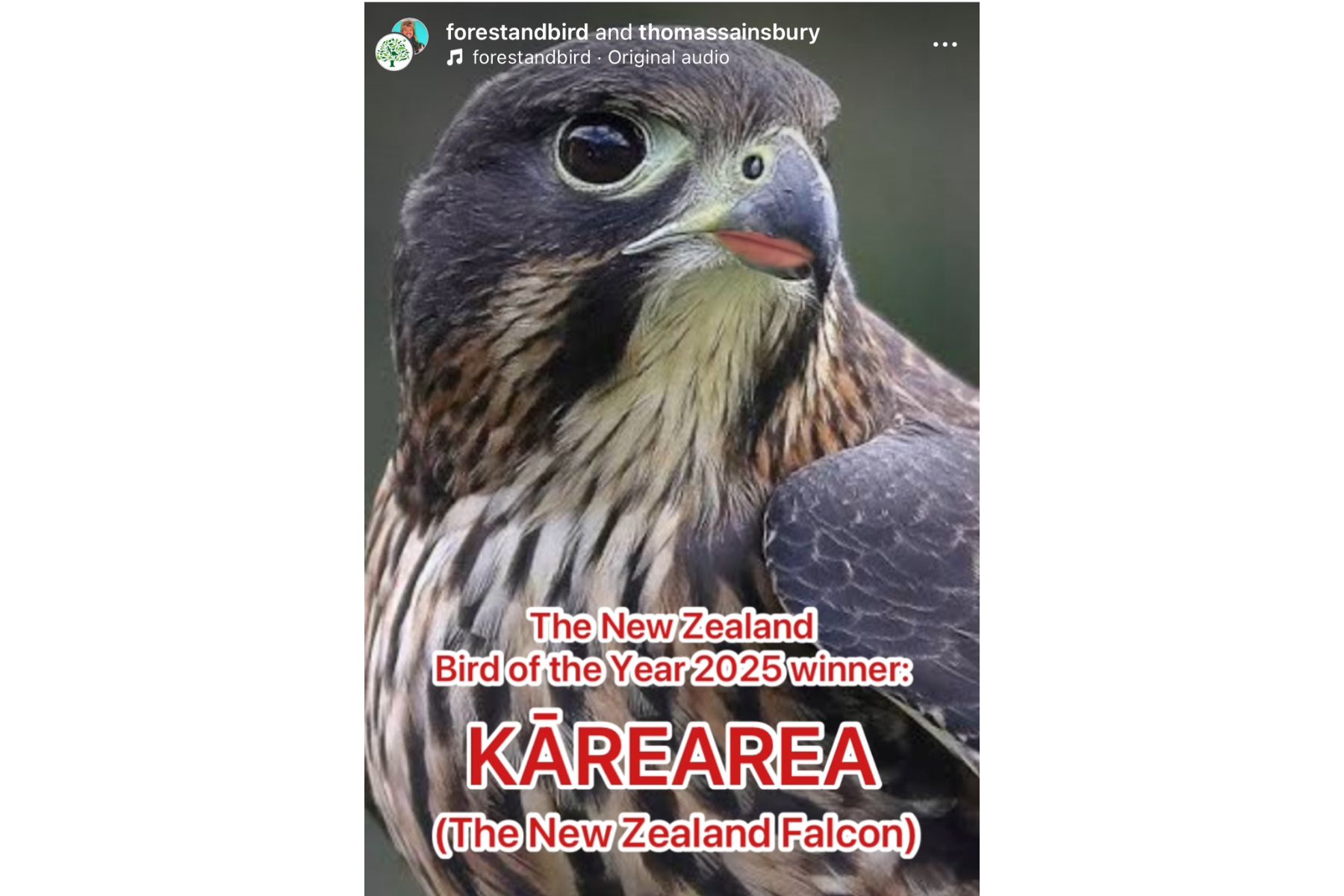Mysterious falcon wins wild award
Feathers have flown in an annual bird election as a passionate fandom declared a mysterious falcon its 2025 winner.

New Zealand ‘s annual bird election is contested by cheeky parrots, sweet songbirds and cute, puffball robins.
And this year’s winner is a mysterious falcon that wouldn’t think twice about eating them.
The Kārearea, with an Indigenous Māori name for the New Zealand falcon, was crowned Bird of the Year on Monday. But the annual poll, run by conservation group Forest & Bird, is no ordinary online vote.
The fiercely fought election sees volunteer (human) campaign managers apply to stump for their favourite bird. Feathers fly as avian enthusiasts seek to sway the public through meme battles, trash-talking poster campaigns and dance routines performed in bird costumes.
“Bird of the Year has grown from a simple email poll in 2025 to a hotly contested cultural moment,” said Forest & Bird Chief Executive Nicola Toki.
You might like
“Behind the memes and mayhem is a serious message.”

Contest sparks joy in a land of birds
The contest draws attention to NZ’s native bird species, with 80 per cent designated as being in trouble to some degree. But it attracts passionate fandom because New Zealanders are bird-obsessed.
Stay informed, daily
In a country with no native land mammals except for two species of bat, birds reign supreme. They appear in art, on jewellery, and in schoolchildren’s songs.
The first contest two decades ago attracted fewer than 900 votes. More than 75,000 people in the country of five million cast ballots this year.
It was the highest-ever voter turnout apart from an episode when Last Week Tonight host John Oliver volunteered as a campaign manager in 2023, prompting mostly joking accusations from New Zealanders of American interference. Perhaps inevitably, Oliver’s bird, the pūteketeke or Australasian crested grebe, won in a 290,000-vote landslide.
Other controversies have struck the poll. In 2021, there was mild uproar when a bat won the title, despite not being a bird.
The vote was ruffled by a foreign influence scandal in 2018 when self-styled comedians in Australia cast hundreds of fraudulent votes for a bird that shares its name with an Antipodean slang term for sex. Voters must now verify the email addresses used to cast their votes.
Forest & Bird said 87 per cent of the votes in this year’s poll came from New Zealand. The falcon’s more than 14,500 votes appeared to have been won fair and square.
The majestic kārearea can fly at speeds of more than 200km/h and swoops to capture its prey, often smaller birds. The endemic species is threatened in New Zealand, vulnerable to electrocution on wires and loss of their forest habitats.
Official figures suggest between 5000 and 8,000 New Zealand falcons remaining, although the true number is unknown.
Want to see more stories from InDaily SA in your Google search results?
- Click here to set InDaily SA as a preferred source.
- Tick the box next to "InDaily SA". That's it.








